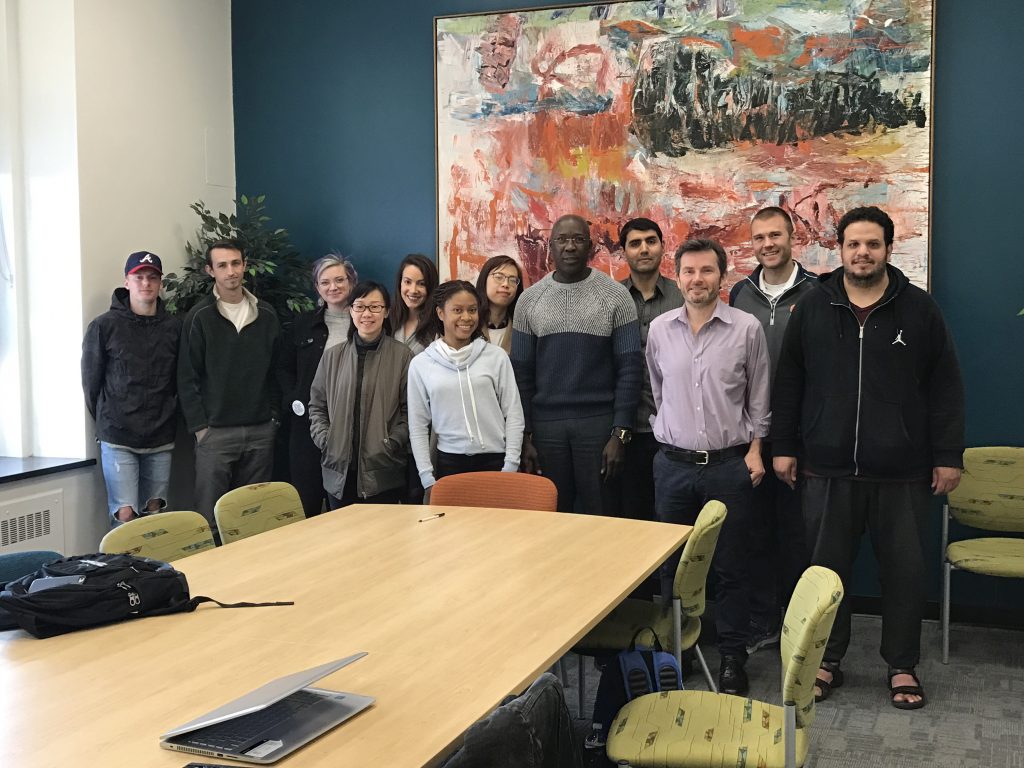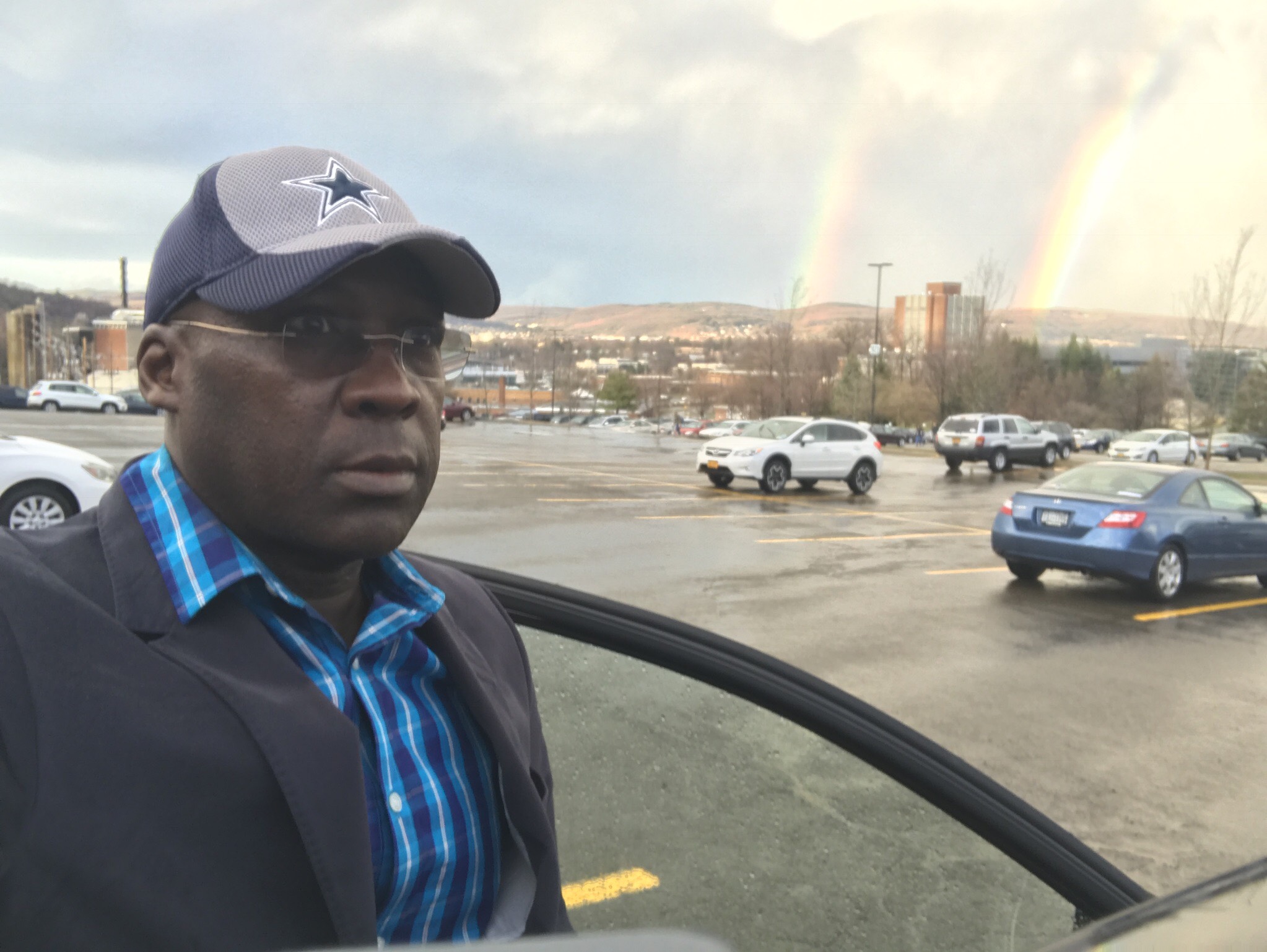
For former Binghamton University Ph.D. candidate Abdourahim Kebe, 56, this summer’s trip to his native country, Senegal, was to serve one purpose: to receive approval of his new visa status so he could return to campus in the fall and complete his degree in translation studies.
That never happened. Following an interview at the U.S. Embassy in the Senegalese capital of Dakar last month, the candidate’s request for an F-1 visa, reserved for students, was denied, and he was stripped of his A-1 visa, which would have been valid until October 2018.
Kebe was a student in associate English professor Joseph Keith’s ENG 593T: Transnational American Studies class during the spring 2017 semester. Keith remembers him as a student who brought a worldly perspective to the classroom.
“He was a very gracious student, in terms of his thinking and how he interacted with other people in the course and I think everybody in the course felt that way,” he said.
Kebe, known as Abdou to friends and classmates, had been granted an A-1 visa when he was posted at the Senegalese Embassy in Washington, D.C., from January 2013 to October 2016. At the recommendation of BU’s Office of International Student and Scholar Services (ISSS) this year he applied to switch to an F-1, with the goal of transitioning his status from that of a diplomat to one of a student.
According to Kebe, the interviewer at the consulate told him he did not have legal status in the United States because he began taking classes at BU months before his F-1 was officially approved by the United States Citizenship and Immigration Services.
“She did not even give me a chance to defend myself,” Kebe wrote in an email. “The only answer was ‘I am sorry, there is nothing I can do. But if you want, you can apply again.’”
So he did, securing a second interview for early this month. This time, he was armed with a letter from Valarie Lane, a designated University official for ISSS, asking for Kebe to be allowed to finish his education at BU.
At this interview, Kebe’s ability to pay for his education was put into question. He said that when he provided the interviewer with the proper documents proving his legality and financial capabilities, she barely glanced at them before handing him his second rejection.
The ISSS office declined to comment on the specifics of Kebe’s case, but Patricia Bello, assistant provost for international and global affairs, issued the following statement in an email: “Please rest assured that the Office of International Student and Scholar Services continues to collaborate with offices across campus to provide the best customer service and advising possible to our new and continuing students, which also includes those who need to navigate the complex system surrounding the non-immigrant student visa application process.”

Provided by Abdourahim Kebe
Kebe has since obtained a Canadian visa and is enrolled at the University of Ottawa, where he is in the process of having his credits transferred from BU. Because of the unanticipated travel and application expenses, he expects his children won’t be able to join him until December at the earliest.
“The education of my children is also going to be jeopardized because they are stranded in Senegal,” Kebe said.
The decision took Kebe by surprise and put the future of his education in jeopardy.
“This unexpected visa denial raises a lot of question marks in me,” Kebe wrote. “Is my name that sounds Arabic/Muslim [the reason for the denial]? Don’t the consulate realize that they are pushing people to stay illegally in the States when they see that those who are striving to keep legal status are treated like I am?”
One memory of Kebe sticks out for his former professor.
“On the last day of class, he wanted to take a picture of everybody, so he would have it as a memento,” Keith said. “That’s the kind of student and person he was.”
Keith said Kebe’s absence will be a loss for the BU community.
“It’s really unconscionable that his visa was denied,” he said. “Abdou is precisely the type of student and person that Binghamton and this country needs.”


